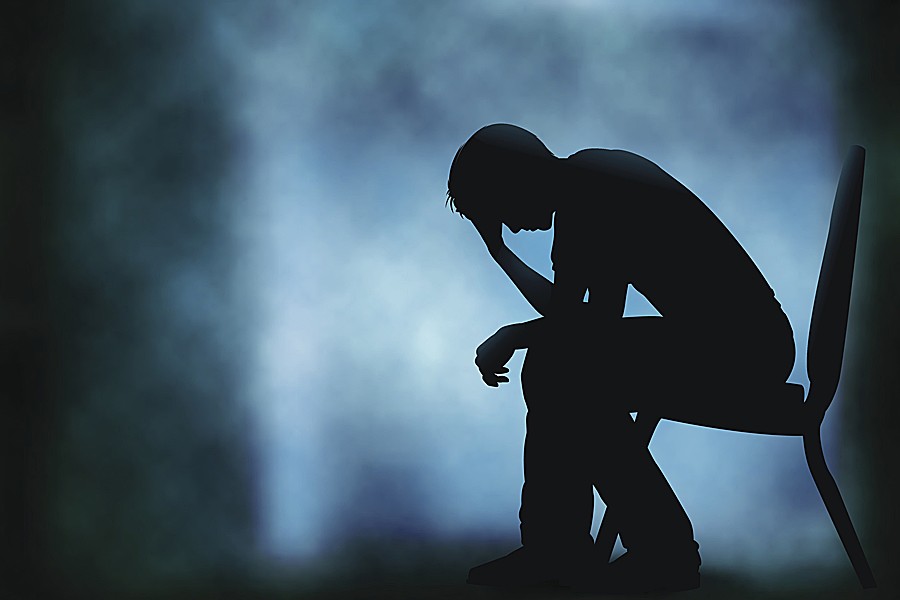Psilocybin
Mental Health Awareness: Depression
The article Mental Health Awareness: Depression was originally published on Microdose.
May is Mental Health Awareness Month. And with the psychedelic…

The article Mental Health Awareness: Depression was originally published on Microdose.
May is Mental Health Awareness Month. And with the psychedelic medicine space being, at its core, about improving people’s lives and mental well-being, Microdose is doing its part to support mental health education with a series of informative articles and resources.
Mental Health Awareness: Depression
Depression is a common and serious mental health disorder that affects millions of people worldwide. It not only impacts the individual’s emotional well-being but can also lead to a range of physical health issues. Understanding the basics of depression and its impact on mental health can help in identifying the signs early and seeking appropriate treatment.
What is Depression
Depression, also known as major depressive disorder, is a mental health condition characterized by persistent feelings of sadness, hopelessness, and a lack of interest or pleasure in activities. It is more than just feeling sad or having a bad day; it is a debilitating condition that can interfere with a person’s ability to function in daily life, affecting their work, relationships, and overall well-being.
Symptoms of depression may include:
- Persistent sad, anxious, or empty mood
- Loss of interest or pleasure in hobbies and activities
- Feelings of hopelessness and pessimism
- Irritability
- Fatigue or loss of energy
- Difficulty concentrating, remembering, or making decisions
- Insomnia or excessive sleeping
- Appetite or weight changes
- Thoughts of death or suicide
How Depression Works on the Brain
Depression is a complex condition that is believed to be caused by a combination of genetic, biochemical, environmental, and psychological factors. While the exact mechanisms are not fully understood, research has identified several ways in which depression affects the brain.
Depression has been associated with changes in neurotransmitters, which are chemical messengers that help transmit signals between brain cells. Imbalances in neurotransmitters such as serotonin, norepinephrine, and dopamine have been linked to depression.
Additionally, depression has been found to impact certain brain regions, such as the hippocampus, amygdala, and prefrontal cortex. These regions play crucial roles in regulating mood, memory, and cognitive function. Studies have shown that these areas may be smaller or have reduced activity in people with depression, which could contribute to the symptoms experienced by those affected.
Depression: A Look at the Numbers
According to the World Health Organization (WHO), depression is a leading cause of disability worldwide, affecting more than 280 million people. Depression affects people of all ages, from children to older adults, and is more common in women than in men.
- WHO estimates that 3.8% of the global population suffers from depression.
- Major depressive disorder is the leading cause of disability for people aged 15-44 in the United States.
- Depression has a significant economic impact, with an estimated cost of $210 billion per year in the U.S., which includes direct medical expenses, lost productivity, and other related costs.
Treatments for Depression
Current depression treatments include psychotherapy, such as cognitive-behavioral therapy (CBT) and interpersonal therapy (IPT); medications like selective serotonin reuptake inhibitors (SSRIs), serotonin-norepinephrine reuptake inhibitors (SNRIs), and atypical antidepressants; and alternative treatments like transcranial magnetic stimulation (TMS), electroconvulsive therapy (ECT), and lifestyle changes involving exercise, diet, and sleep hygiene.
Psychedelic Medicine and Depression
While traditional treatments for depression can help, they can have low rates of effectiveness for some patients and can come with side effects. The ineffectiveness of current treatments has led in part the search for alternative treatments for depression like psychedelic medicine.
At the moment, Ketamine treatments and esketamine nasal spray are the only legal psychedelics being used for depression patients, and they’ve shown to provide rapid relief for treatment-resistant depression.
On-going clinical trials using psychedelics are showing very positive results, led by Compass Pathways trial using psilocybin for depression, and a recent study using LSD to treat depression.
For more psychedelics for depression, check out LSD for Depression: A Closer Look
In conclusion, depression is a prevalent and serious mental health disorder that can have significant consequences for individuals and society. By understanding the basics of depression, its effects on the brain, and the importance of early intervention, we can work together to reduce the stigma surrounding mental health and ensure that those affected receive the support and treatment they need.
If you’re suffering from depression or other mental health conditions, please reach out for help. In addition to family and friends, resources and helplines can be found here: https://findahelpline.com
Editor’s Note: Some passages of this text were produced using ChatGPT
psilocybin lsd ketamine psychedelic therapy major depressive disorder psychotherapy depressive disorder depression dopamine serotonin neurotransmitters psychedelics compass research
-

 Psilocybin1 week ago
Psilocybin1 week agoCalifornia advances bill for psychedelics centers
-

 Psilocybin5 days ago
Psilocybin5 days agoPassover Perspectives: Psychedelics, Moses, and the Burning Bush
-

 Psychedelics1 week ago
Psychedelics1 week agoPsychedelics Can Offer More Than Therapy On Its Own
-

 Psychedelics4 days ago
Psychedelics4 days agoAlgernon NeuroScience and the Centre for Human Drug Research to Present DMT Phase 1 Stroke Clinical Data at the Interdisciplinary Conference on Psychedelic Research June 6 – 8th, 2024
-

 Psychedelics5 days ago
Psychedelics5 days agoRevive Therapeutics Announces Type C Meeting Request Granted by FDA for Clinical Study of Bucillamine to Treat Long COVID
-

 Psychedelics5 days ago
Psychedelics5 days agoOptimi Health and Kwantlen Polytechnic University Applied Genomics Centre Partner to Advance Mushroom Science and Research
-

 Psychedelics4 days ago
Psychedelics4 days agoatai Life Sciences Announces Dosing of First Patient in Part 2 of Beckley Psytech’s Phase 2a Study Exploring BPL-003 Adjunctive to SSRIs in Patients with Treatment Resistant Depression
-

 Psychedelics5 days ago
Psychedelics5 days agoRevive Therapeutics Announces Type C Meeting Request Granted by FDA for Clinical Study of Bucillamine to Treat Long COVID








